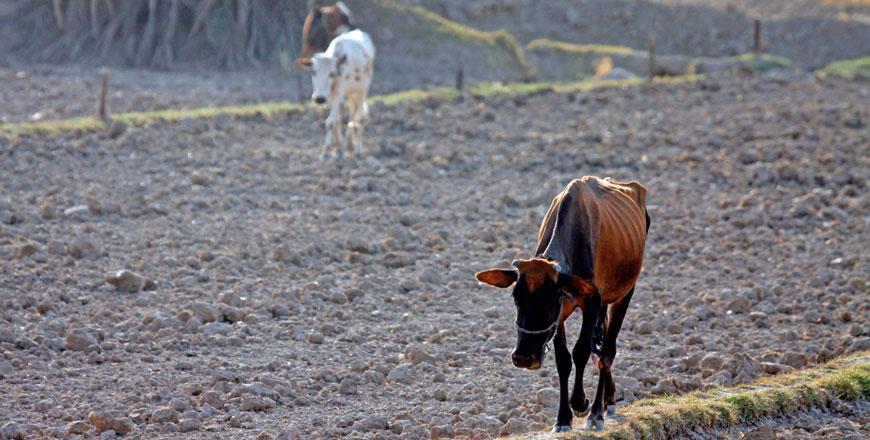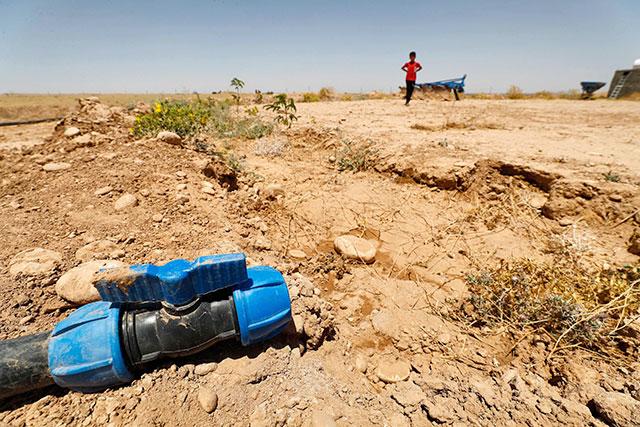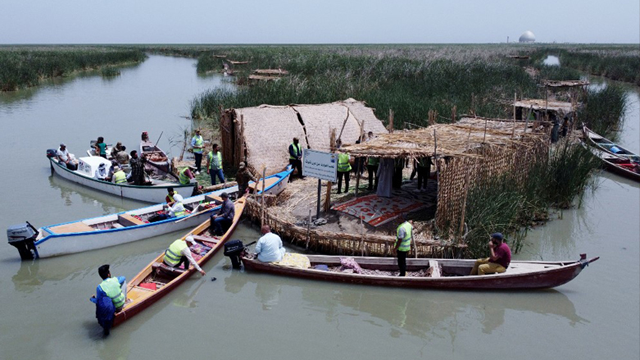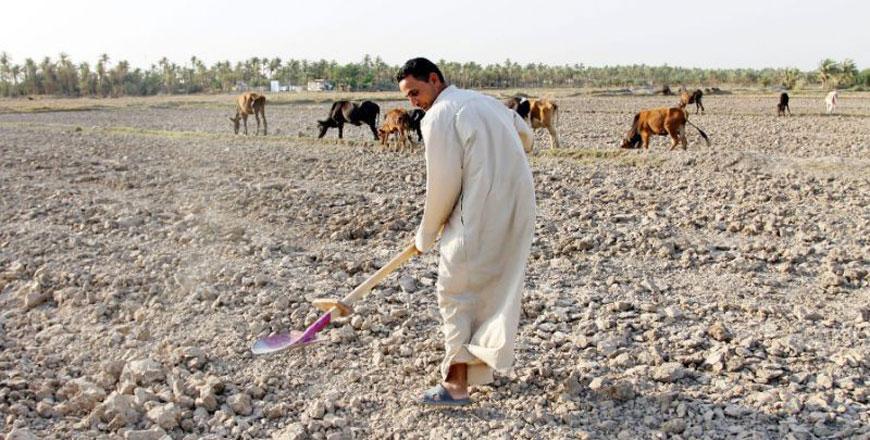You are here
Iraqi farmers fight to save cattle from drought
By AFP - Jul 30,2018 - Last updated at Jul 30,2018

In this file photo taken on July 02 a skinny cow walks on a dry field in an area affected by drought in the Mishkhab region, central Iraq, some 25 km from Najaf (AFP photo)
Al ATTASSIYA, Iraq — As southern Iraq suffers through a punishing drought, desperate cattle breeders are having to sell off some animals to keep others alive.
Iraqi farmer Sattar, 52, has already seen some of his buffalo die of thirst.
Now, in a bid to stop any others from being lost, he is being forced to say goodbye to some of his prized beasts.
"With the money, we will be able to buy water and hay for the rest of the herd," he tells AFP.
Sattar is far from the only farmer being hit by the drought.
Local authorities estimate that some 30 per cent of cattle across the south of the country have been lost during the drought, either dying from thirst or sold off for slaughter.
That is a major blow for the estimated 475,000 families who make their livings off of livestock across the south of the conflict-hit country.
Herder Ali, 24, understands all too well the challenges being faced.
He has to travel ever greater distances with his flock to find water.
Around him, canals have run dry and the cracked earth, empty water pipes, and dead grass testify to how few options farmers now have.
To quench the thirst of their animals they have to pay, and the price of water has shot up, he says.
The lack of water is painful in an area that once formed part of the so-called "fertile crescent".
Dubbed the "country of two rivers" due to the presence of the mighty Tigris and Euphrates, Iraq has seen its water supply shrinking for years.
This year rainfall has been particularly scarce and reservoirs currently stand at only 10 per cent full.
Beyond the natural causes there is also a human factor worsening the problem — the sharing of water resources on a regional level.
Neighbours Iran and Turkey have in effect rerouted several rivers and tributaries that used to help irrigate Iraq.
The recent launch of Turkey's Ilisu Dam on the Tigris has provided another blow for Iraqi agriculture and in June the authorities were forced to make a tough call.
The agriculture ministry suspended the growing of rice, corn and other cereals that consume a lot of water.
To help keep livestock watered, trucks are making the rounds in southern Iraq, offering to fill up the plastic tanks around cattle sheds for $20 (17 euros).
But as farmers see the costs soar, the price that their cattle fetch is collapsing.
Animals that once could have gone for up to $5,000 a head are now selling for as little as $1,500, meaning that cashing in on a buffalo can only cover the herd for two months.
To try to make ends meet, many farmers have had to resort to taking out loans at banks and going into debt.
Unable to pay off their bills, a group of farmers recently took to the streets in southern Iraq asking for delays in their payments.
"Never in its history has Iraq known such a catastrophe," said Ahmed Al Issawi, head of the agricultural cooperative in Najaf.
"Our animals are forced to drink water where even mosquitos can't survive."
Related Articles
Upstream dams in Turkey and Iran have diminished the Tigris and Euphrates rivers, which are also heavily polluted with sewage, waste and agricultural runoff as they flow southeast through Iraq.
CHIBAYISH MARSHES, Iraq — Black buffaloes wade through the waters of Iraq’s Mesopotamian marshes, leisurely chewing on reeds.
BAGHDAD — Areas under cultivation in Iraq have halved this summer compared to last year due to a drought that has led to a ban on water inte


















